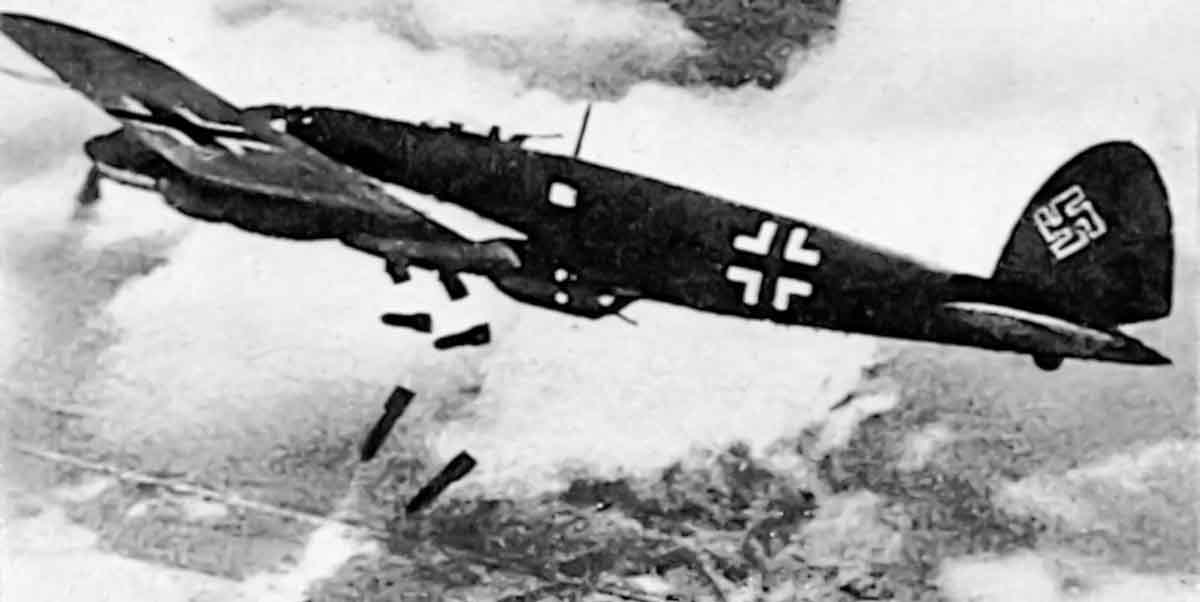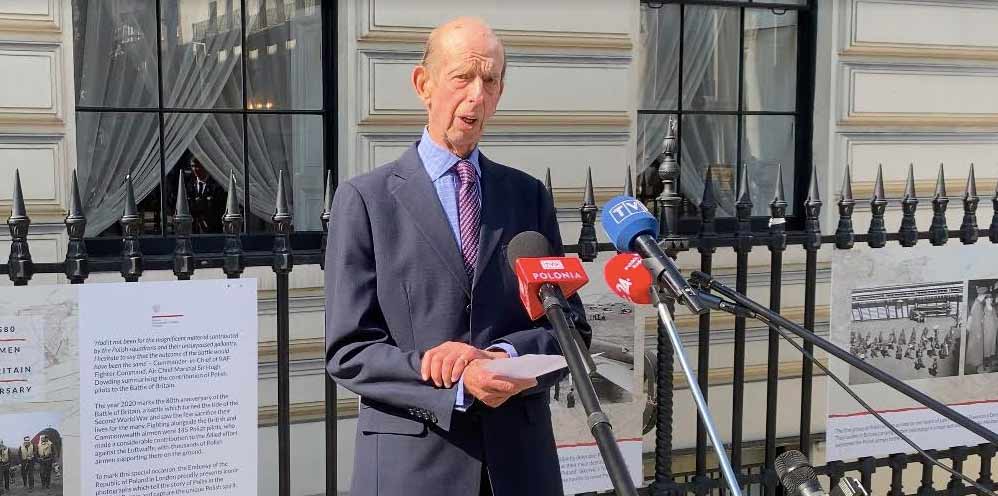The Battle of Britain (July 10–October 31, 1940) was one of the turning points of World War II. After the fall of France, Great Britain stood alone against the Nazi war machine. The fate of all of Europe depended on the outcome of this battle—if Britain were defeated, Germany would control the continent, and the Polish cause would cease to exist.
Poles in British Skies
After the defeat in September and evacuation through Romania to France and then to Great Britain, Polish airmen continued fighting in the ranks of the RAF. By July 1940, the Polish Air Force in the United Kingdom numbered over 8,000 men—pilots, mechanics, and ground crew. Despite initial British distrust, the Poles quickly demonstrated their mastery and became a symbol of courage.
In August, the first units reached combat readiness: the 302nd "Poznań" Fighter Squadron and the 303rd "Warsaw" Squadron named after Tadeusz Kościuszko (formed on 2 August, declared operational and commissioned for full service on 31 August 1940). In September, the 300th "Masovian Land" and 301st "Pomeranian Land" bomber squadrons joined . All units were formally subordinate to the RAF, but retained their own structure and national identity.
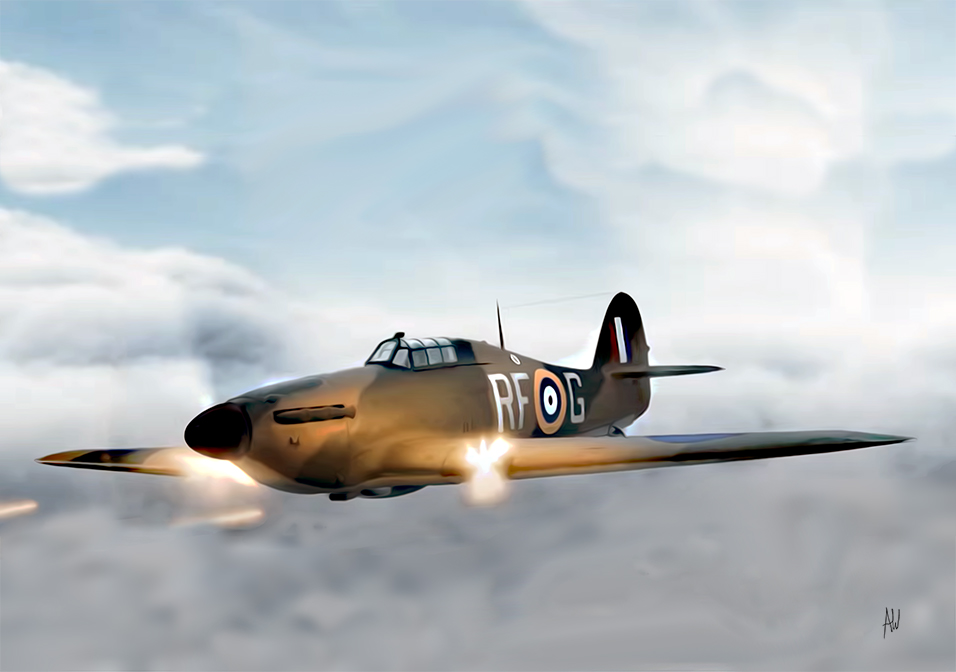
Hawker Hurricane of 303 Squadron in action (Illustration by the author)
145 Polish Aces
Over 2,900 Allied pilots took part in the Battle of Britain, including 145 Poles. (This figure does not include Polish technical personnel, whose contribution to the victory was equally significant.) They constituted approximately 5% of all combatants, but were responsible for 10–12% of German aircraft shot down. Their effectiveness was the highest of all nations fighting under RAF command. After several days of fighting, it was the Poles who trained the British as instructors.
The 303rd Squadron gained particular fame, with 126 aerial victories—the most of any unit participating in the battle, despite not joining the fight until a month after its commencement. The Kościuszko emblem that adorned the 303rd Squadron's aircraft was designed in 1919 by Merian C. Cooper, who later directed the film King Kong.
The pilots of 302 Squadron also achieved excellent results, while Poles assigned to 27 British units shot down several dozen Luftwaffe aircraft. Bombers of 300 and 301 Squadrons successfully attacked German landing groups preparing for the invasion of the British Isles.
The Polish pilots fought with extraordinary daring and accuracy. Unlike the British, they weren't afraid to close the distance, approaching almost within arm's reach and firing short, accurate bursts. Their fighting style—fast, aggressive, and precise—disrupted German formations and increased the effectiveness of the attack.
Heroes of the Heavens
Among the most effective Polish pilots were Stanisław Skalski, a fighter ace, a veteran of the September Campaign, the first Polish ace of the battle – he later also flew in the British 501 Squadron – who shot down a German Heinkel 111 bomber on his first day, and Zdzisław Krasnodębski, the first commander of 303 Squadron, wounded in combat and awarded the Silver Cross of the Virtuti Militari by General Władysław Sikorski. Polish pilots said of Skalski that he had "bird instinct," while the Germans called him "Flying Death."
The commander of the 303 Squadron, Witold Urbanowicz, recalled many years later the dramatic scenes of September 15, 1940:
The roar of engines, the rattle of machine guns, burning planes with tails of black smoke (...) Lines of light projectiles crisscrossed like a spider's web.
Witold Urbanowicz proved to be the most effective Polish pilot in the Battle of Britain, with 15 confirmed kills.
Polish women also served in the RAF, in the Women's Auxiliary Service (WAAF).
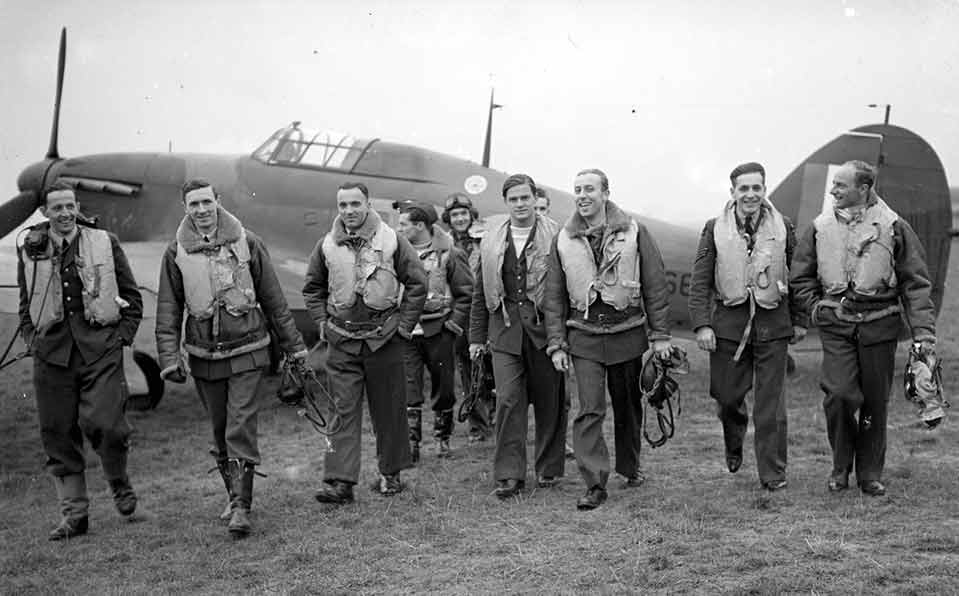
Pilots of 303 Squadron in 1940. From left: F/O Ferić, F/Lt Kent, F/O Grzeszczak, P/O Radomski, P/O Zumbach, P/O Łokuciewski, F/O Henneberg, Sgt Rogowski, Sgt Szaposznikow (Source: Wikipedia)
Battle of Britain Day – 15 September 1940
That day saw the largest air battle in history. The Luftwaffe launched over 1,500 aircraft in an attempt to breach London's defenses. Among those defending British skies were Poles from No. 302 and No. 303 Squadrons, flying Hawker Hurricane Mk.I fighters . That day alone, they shot down at least 28 enemy aircraft, with minimal losses.
Prime Minister Winston Churchill, watching the fighting from his command center in Uxbridge, uttered words that went down in history after it ended:
Never in the history of human conflict have so many owed so much to so few.
As historian Norman Davies noted , a significant percentage of these "few" were Poles.
The Battle of Britain was the first war in history fought entirely in the air. Initially, the Luftwaffe attacked convoys and ports along the English Channel, and soon its bombers moved on to London, Birmingham, and Liverpool. The RAF responded with increasing intensity, flying a thousand sorties a day.
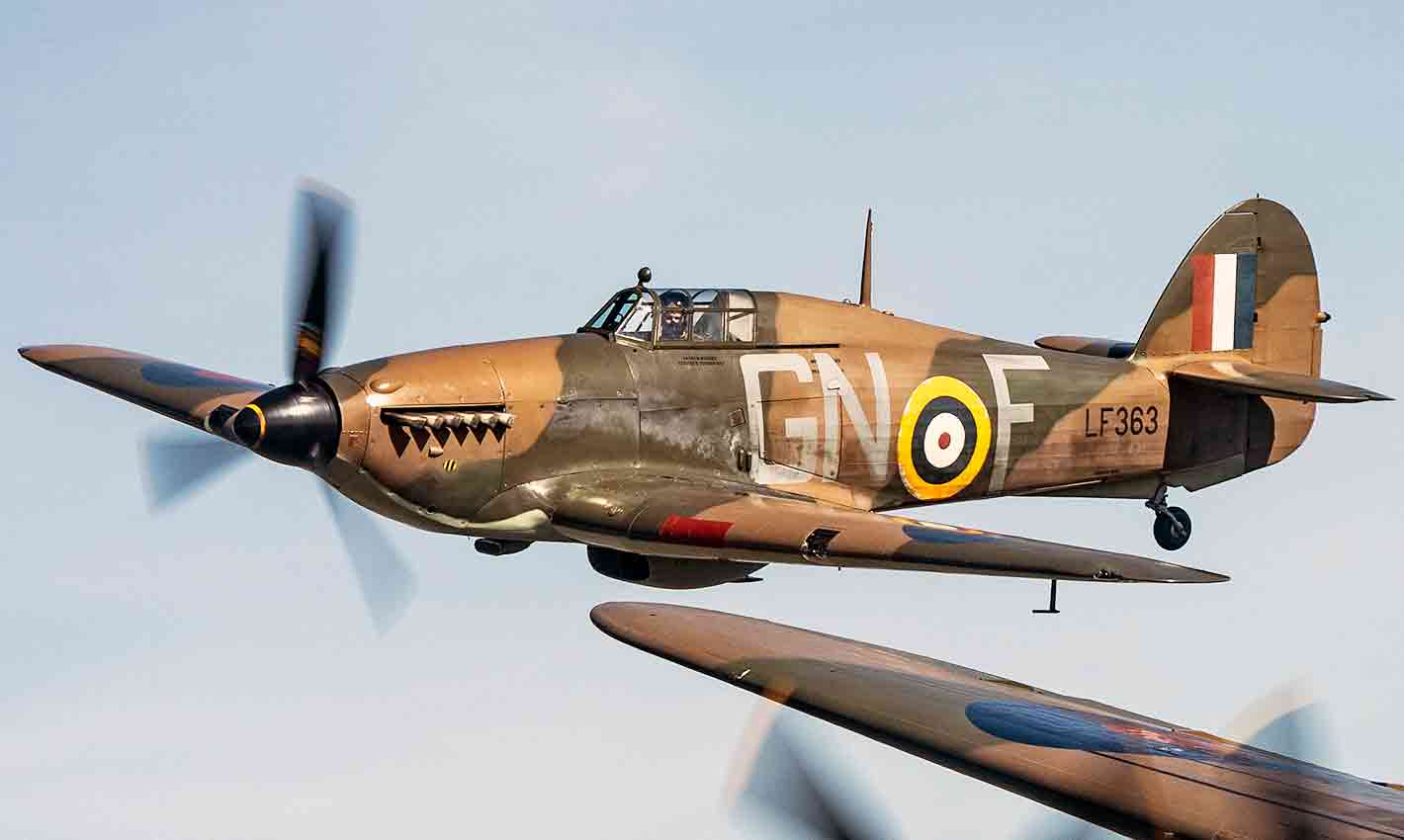
Hawker Hurricane Mk. IIc of the Battle of Britain Memorial Squadron (BBMF) — one of the few examples still flying (Source: Wikipedia)
During several months of fierce fighting, the Luftwaffe lost approximately 1,733 aircraft and over 2,500 airmen, with some 650 damaged, while the RAF lost 1,087 aircraft. Poles contributed to the downing of at least 170 German aircraft, many of which were lost – 29 Polish pilots did not return from their missions. Their sacrifice is forever etched in the history of our shared victory.
Why Did the Luftwaffe Lose?
After the war, historians accepted that the actual Battle of Britain had been fought until the end of October 1940.
The German strategy collapsed due to poor decisions by Hitler and Göring, overestimating their own strength, and underestimating the potential of Allied radar. Furthermore, the Germans made the fatal mistake of shifting their attacks from RAF bases to London, allowing the British to rebuild their defenses.
The work of Polish cryptologists – Marian Rejewski, Jerzy Różycki and Henryk Zygalski – who had broken the Enigma code before the war, enabling the British to intercept German reports, was also significant .
Forgotten Heroism
Poles not only helped save Britain but also turned the tide of World War II. In total, Poles shot down over 760 enemy aircraft throughout the war .
Unfortunately, after 1945 their contribution was deliberately reduced for political reasons – at the Yalta Conference, the West placed Poland in Stalin's sphere of influence.
Despite this, the memory of Polish pilots endures. Their courage, professionalism, and sacrifice of life remain a symbol of fidelity to the motto:
For our freedom and yours.
The Battle of Britain was Hitler's first defeat in World War II. For Poles, however, it had an even deeper meaning – it was a fight for honor, for the freedom of an ally, and for the future of their own homeland, which they were not willing to renounce.







